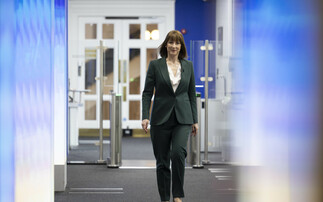The FTSE 100 has slumped by 8.3% following the UK's vote to leave the European Union in yesterday's referendum, while government bond yields have fallen to record low levels.
Markets will also now be digesting the news Prime Minister David Cameron has announced his resignation. He said this morning he hopes a new leader will be in place by the time of the Conservative Party Conference in October.
The FTSE has dropped to 5,811 in early trading, while the yield on the benchmark 10-year UK government bonds has seen a drop of 0.31 percentage points to a record low of 1.07%, in line with dramatic falls in yields on US and German government debt.
In Europe, the EuroStoxx 50 is down 6.5% to 2,841, with the Italian FTSE MIB is 3.9% lower, the Spanish IBEX 35 down 8.2%, the French CAC 40 falling 7.4% and Germany's DAX 9.7% lower.
Bonds across the globe are seeing inflows on the back of widespread risk aversion, with yields on 10-year US treasuries close to four-year lows of 1.49%, while 10-year German bund rates are down at -0.17%, and Japan's benchmark down at -0.185%.
The pound has also fallen some 10% against the dollar to the lowest level since 1985 overnight following the United Kingdom's decision to leave the European Union in yesterday's referendum.
At one point sterling hit $1.3305, and is currently trading 9.9% lower at $1.3408. Against the euro, the pound dropped 7% to around €1.2085.
The fall marks the pound's lowest level against the US dollar since 1985 and biggest one-day fall ever seen, according to the BBC.
The euro is suffering its worst ever daily fall against the greenback, down 3.3% to a three-month low of $1.1019, having previously dropped 4.2%.
Gold jumped 22% against the pound overnight, in its fastest ever move, leaping to new three-year highs above £1,000 per ounce as investors sought safe havens.
It was revealed overnight that 52% of the British public voted to leave the EU against 48% who voted to stay.
The results of the referendum came as a shock to markets following yesterday's polls, which indicated 'remain' was slightly ahead.
Asian markets plummeted overnight on the news, with Japan's Nikkei 225 index shedding 8.4% to hit 14,870 points, while the Hong Kong Hang Seng is down 4.8% to 19,862 points.
Meanwhile, the FTSE 100 is forecast to open around 7% lower, having closed 1.2% up at 6,338 last night, according to the BBC.
Commenting on the referendum results, the Bank of England said it will"take all steps necessary" to ensure financial stability in the UK following the decision.
In a statement released just before 7am, the Bank said: "[The Bank] has undertaken extensive contingency planning and is working closely with HM Treasury, other domestic authorities and overseas central banks.
"The Bank of England will take all necessary steps to meet its responsibilities for monetary and financial stability."
Ahead of the referendum vote, the Bank's governor Mark Carney warned that a Brexit could lead to a "technical recession", although he said there is toom in monetary policy to boost growth through conventional or unconventional tools.
Many senior asset management figures have previously warned Brexit is likely to generate significant market volatility, as foreign investors continue to take money out of the UK, hitting domestically-focused mid- and small-cap companies in particular.
For example, billionaire investor George Soros warned last week that a Brexit could see sterling fall by 20% against the greenback, more than when he profited from betting against the currency ahead of Black Wednesday in 1992.
However, Invesco Perpetual's Mark Barnett said that while the initial impact of a Brexit will be negative for markets, in the long term "the UK can adapt to whatever is thrown at us".
In the two months ahead of the referendum, investors pulled £65bn from the UK, marking the fastest rate of outflows since the financial crisis.













